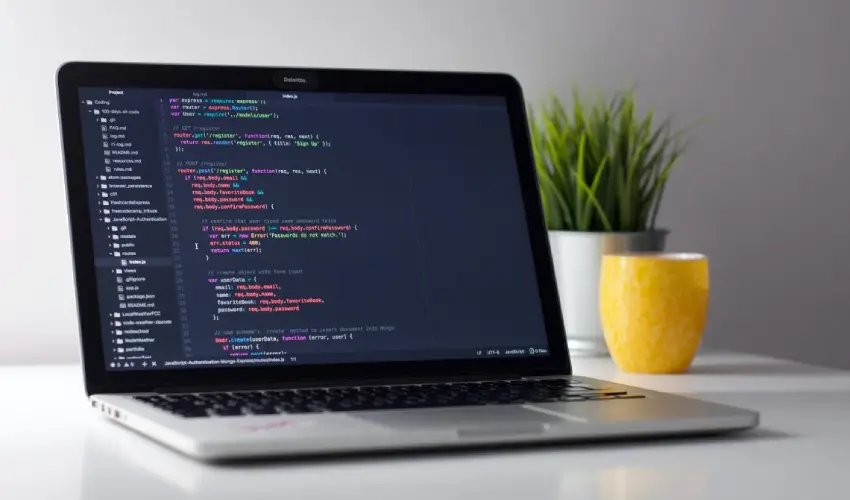
- Shehr Yar
- 25 November, 2024
As a web developer, writing clean, efficient, and maintainable code is essential to delivering high-quality solutions. Whether you’re working on a simple website or a complex web application, adopting best practices can ensure your code is not only functional but also scalable, readable, and easy to manage. Here are some key coding tips to help you level up your development process:
Follow Consistent Naming Conventions
Consistent and descriptive naming for variables, functions, and files can improve code readability significantly. Always choose names that explain what the function or variable represents, so anyone who reads your code will easily understand its purpose. Stick to either camelCase (for JavaScript) or snake_case (for Python) conventions throughout your code.
Write Modular Code
Breaking your code into small, reusable modules is a great practice. Each function or component should perform one specific task, and the code should be flexible enough to be reused in other projects. This reduces redundancy, improves testing, and makes debugging easier. By keeping your code modular, you ensure its longevity and ease of maintenance.
Comment Your Code When Necessary
While writing clean, self-explanatory code is a goal, it’s always a good idea to add comments explaining complex logic, any workarounds, and why specific decisions were made. It ensures that other developers (or even yourself) won’t be left puzzled about how certain parts of the code work months or years down the line.
Adopt Version Control
Version control systems, like Git, are essential for collaboration. Whether you’re working alone or with a team, using a version control system lets you keep track of changes to the code, making it easier to backtrack and manage versions. It’s a best practice for maintaining project integrity as well.
Keep Your Code DRY (Don’t Repeat Yourself)
Duplicating code across files or sections can create maintainability issues down the line. If you find yourself copying and pasting the same code, that’s an indication that it should be refactored into a function, method, or class. By keeping code DRY, you ensure that any changes need to be made in only one place, reducing the risk of errors and inconsistencies.
Refactor Regularly
Refactoring involves reworking parts of your code to make them simpler, more efficient, and easier to maintain without changing their functionality. It’s a vital practice for ensuring your codebase doesn’t get bloated over time. Try to set aside time in your development cycle for refactoring to keep the codebase clean.
Utilize Developer Tools & Extensions
From IDE extensions to browser developer tools, using the right tools can improve both your productivity and code quality. Tools like Visual Studio Code, Prettier for automatic code formatting, and GitHub’s pull request system for team collaboration are some essential parts of any developer’s toolkit.
Ensure Your Code is Well-Documented
While commenting is useful, having proper documentation for your code, APIs, and frameworks is crucial. Tools like JSDoc (for JavaScript) or Sphinx (for Python) can automatically generate documentation based on your code’s comments. This is invaluable for teams working on larger projects, as it’s easier to onboard new developers and maintain consistency across the board.
Follow Web Performance Best Practices
A fast website is a good website! Optimizing the load time and performance of your web applications should always be a priority. Use proper asset management techniques like minification, lazy loading, and compressing images. Make sure you’re not overloading your website with unnecessary scripts or resources.
Write Unit Tests
Writing tests for your functions, APIs, or components ensures that the system behaves as expected. Unit testing improves your code’s reliability and reduces the chance of introducing new bugs in future updates. Integrate testing into your workflow with frameworks like Jest for JavaScript or Php.
Conclusion
Whether you’re working on a personal project or collaborating with a team, these coding tips can significantly improve the quality and efficiency of your code. As a passionate web developer, I follow these best practices to deliver robust, maintainable solutions to my clients. For more tips, tricks, and web development insights, check out my portfolio at ShehryarDev. Let’s keep coding and stay ahead of the curve!



